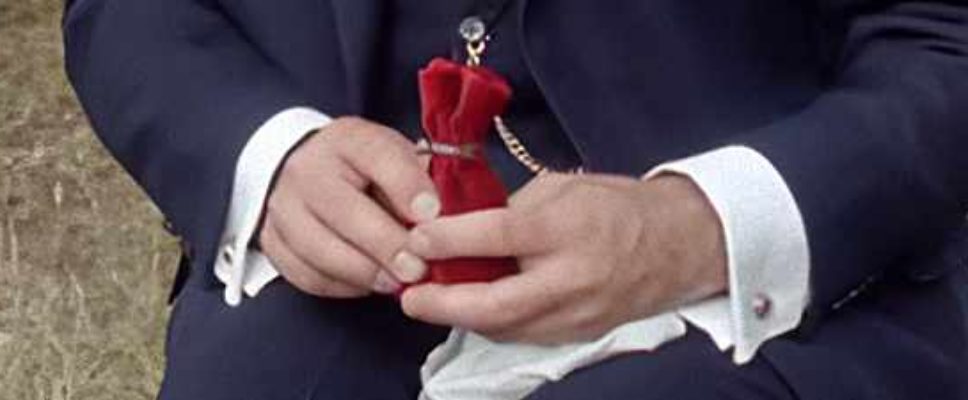Teresa Reviews “Double Clue” (1991)
Fidelity to text: 2 jewel thieves
![]() A seven-page story got hugely reworked. Mood, tone, characters all got a make-over, including Poirot. He found a long-lost love and lost his moral compass.
A seven-page story got hugely reworked. Mood, tone, characters all got a make-over, including Poirot. He found a long-lost love and lost his moral compass.
Quality of movie on its own: 2 jewel thieves
![]()
![]()
![]()
Read more of Teresa’s Agatha Christie movie reviews at Peschel Press.
Also, follow Teresa’s discussion of these movies on her podcast.

Soon thereafter, Chief Inspector Japp visits Poirot. He’s desperate for help. Three jewel thefts have occurred among the high and mighty. We’re only five minutes in and the episode falls apart. I can’t accept that Scotland Yard would inform the highly respected, capable, and efficient Japp that his job was on the line over a few jewel thefts among the toffs. The man clears murder cases on a regular basis — successfully bringing criminals to the crown’s justice — and now his job is at risk? Over theft? Yes, it’s felony theft of valuable jewelry worth thousands of pounds, but I couldn’t buy it. Maybe if the Crown Jewels had been stolen from the Tower of London, I’d accept Japp losing his job if he doesn’t solve the crime and recover the goods, but not for this.




Sure. Whatever. Still worse, despite earlier episodes making much of modern forensics, no one here acted as if fingerprints existed. Scotland Yard began using fingerprint evidence in 1901 so don’t tell me they were ignorant of basic evidence gathering in 1936.
Then, no one at Scotland Yard reads well enough to compare guest lists at the various soirees where jewel thefts occurred. Who attended each of the parties where a robbery took place? Could it be suspicious that only one person attended all four parties? Why, no, of course not, because that person is a Russian countess and a) aristocrats are above suspicion and b) foreigners are above suspicion. Huh? This is England where we’ve seen multiple crimes taking place among the upper classes and the foreigner is the first person suspected. Poirot himself has commented on this!
Poirot quickly works out that the countess is guilty and then spends the rest of the episode in a flirtatious, wistful pas de deux with her because … he’s fallen in love with her! Or they were lovers in the past! Or something along those lines because he sure treated Countess Vera Russakoff differently than he normally treats jewel thieves, particularly jewel thieves who put a colleague’s job at risk.
Still worse, the countess stole Bernard Parker’s glove and deliberately left it at the scene to implicate him. So, because Countess Vera was an old flame, it was okay for her to implicate Parker leading to years at Wandsworth Prison for a crime he did not commit?
Unacceptable. Poirot is dedicated to seeing justice done. He doesn’t condone theft any more than he condones murder.




He unlatches the window and easily locates the necklace in the vine. Um, no. Once again, I cannot accept how incompetent this makes Scotland Yard and Inspector Japp look. They would have checked. Poirot’s explanation is that the tramp was the thief and is now gone and no more jewel thefts at posh parties will happen. And Japp accepts this! And so, apparently, does Scotland Yard! We must have fallen back in time to the Middle Ages and Brother Cadfael except Brother Cadfael would have given a better explanation.
The ending was worst of all. Poirot sees Countess Vera off, first at a charming, wistful luncheon at the train station café and then off on the train, accompanied by two minders to make sure she boards the train. They chat about how they are different people with different paths. Countess Vera goes off to America to continue her career as a jewel thief and Poirot is okay with this as long as she doesn’t commit crimes in England!
I was appalled. I cannot accept this story line. I don’t know what was worse; the complete rewriting of Poirot’s character or the fact that Hastings of all people makes a correct deduction. He couldn’t understand why Countess Vera thought the contralto was Japanese. If she’d sat through the concerto like she claimed, she would have known it was the pianist. Hastings pointed out the glaring incongruity, and Poirot lets it pass without a word.
I was so disappointed. We would finally meet the mysterious Countess Vera Russakoff, Poirot’s old flame.


Was there anything to like? Sure. Beautiful clothes, scenery, acting, set pieces, Miss Lemon and Hastings investigating and you know who was brains in that duo. Scene after wonderful scene, but woven into a bad script. It mixed emeralds with chips from broken Coke bottles.



